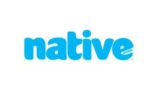Globe Project 1 Phone: A Call for Good
Technological changes in the field of telecommunications are happening in a rapid pace. Continuous popularity of social networking sites, the high demand for mobile browsing, and the availability of very affordable communications gadgets encourage more people to replace or upgrade their mobile phones almost yearly.
With this development, old gadgets often end up abandoned or worse, thrown into the trash together with drained phone batteries and broken chargers. These obsolete and unwanted electronic and electrical devices add up to millions of metric tons of e-waste disposed worldwide every year which cause toxic metals such as lead, mercury, cadmium, and beryllium to be released into the air and seep into the ground and waterways.
To combat the dumping of e-waste and promote stronger social and environmental practices, leading telecommunications company Globe Telecom is embarking on the biggest and most ambitious mobile recycling program in the Philippines. Dubbed as Project 1 Phone, it is designed to create awareness on proper e-waste disposal and to promote sustainability.
“Globe is not only dedicated to growing its business but is also committed to addressing environmental concerns and promoting human health amidst the fast growth of this high-tech industry. Being a communications provider, Globe takes responsibility in educating the people on how to dispose their old mobile devices and computers as well as end-of-life mobile battery packs and chargers in the best way possible,” said Yoly Crisanto, Senior Vice President of Globe Corporate Communications.
By donating unused, non-working, or damaged phones and tablets, mobile phone batteries, and even personal computers to the campaign, each Filipino would be able to do his share in minimizing not only the environmental impact of e-waste but also counter its harmful effects on health such as skin diseases and possible damage to vital organs and the skeletal system.
Globe also makes it easy for its customers and other stakeholders to participate in the drive by providing donation bins in participating Globe Stores in various parts of the country (for the complete list, please visit the Globe Telecom website www.globe.com.ph/project1phone).
Schools, corporations, local government units, and other private and non-government organizations may also participate in the program by adopting recycle bins. Interested parties may email Globe at bridgecom@globe.com.ph.
All devices and accessories that Globe will gather shall be turned over to TES-AMM, a leading electronics waste recycler which will take responsibility for at end-of-life products to ensure that they are managed responsibly.
Formed in 2005, TES-AMM combines state-of-the-art technology with in-depth knowledge of environment and waste management techniques to provide reuse solutions and recovery of precious metals from end-of-life electronics such as computers, cell phones, peripherals, television sets, among others. It is headquartered in Singapore with facilities in other parts of Asia, Ocenia, Americas, Europe, Middle East and Africa.
TES-AMM will, likewise, work on recovering precious metals and plastics from the recycled gadgets. Globe has committed to build at least 40 school buildings in the province of Aklan and proceeds of Project 1 Phone will be used to add to the said number since hundreds of classrooms are still needed in the area.
Right now, Aklan needs hundreds of classrooms to accommodate its student population which was displaced after schools were destroyed or damaged by Typhoon Haiyan almost a year ago. Globe, a development partner for Aklan, committed to put up at least 40 school buildings in the province. Five of the 11 schools Globe committed under Phase 1 of the program are already undergoing construction.
Globe with the help of Habitat for Humanity and Ayala Foundation is building in two phases. The first phase involves the construction of “Noah’s Ark”-type classrooms that double as evacuation structures during calamities as they are equipped with three toilet and bath facilities each as well as a kitchen.
The second phase is comprised of more than 30 regular but “built back better” classrooms to be funded from proceeds of the company’s enterprise-wide waste management program, as well as from parent-company Ayala Corporation.
* * * * *
LIKE our Facebook page at https://www.facebook.com/pages/Davao-Life.
Follow us on Twitter at @DavaoLifedotcom.









